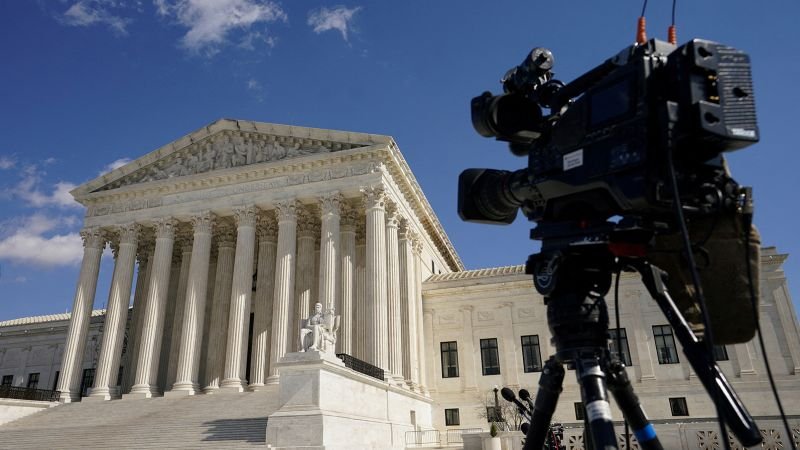Abortion Pill Case: What the Supreme Court’s Decision Could Mean for Women’s Health
A group of doctors opposed to abortion recently asked the Supreme Court to restrict access to a key medication abortion drug while other legal challenges play out. This filing comes as Wednesday night’s deadline for the court to act approaches, sparking heated debate on the future of women’s reproductive rights in the United States.
The drug in question, mifepristone, has been a point of contention for years. A federal judge in Texas recently ruled that the drug should not have been approved in 2000, leading to a flurry of legal battles and appeals. The latest request from the doctors asked the justices to ultimately deny the request from the Biden administration, arguing that the government and the drug manufacturer have disregarded safety concerns and legal regulations for years.
Erik C. Baptist, the lawyer representing the doctors, emphasized that the US Food and Drug Administration (FDA) has not done enough to study the safety of the drug. He criticized the agency for stripping away necessary safeguards on chemical abortion, citing concerns for women’s well-being and unborn life. Baptist’s argument highlights the core issue at stake in this case: the balance between women’s reproductive rights and regulatory oversight.
The Biden administration and the drug manufacturer, on the other hand, have defended the drug’s safety and efficacy. They argue that the lower court rulings that restrict access to the drug are unjust and hinder women’s access to safe and legal abortion care. Justice Samuel Alito’s decision to grant a temporary hold on the lower court ruling reflects the complexity of this case and the broader debate surrounding abortion rights in the US.
The Supreme Court’s decision on this case could have far-reaching implications for women’s health and reproductive rights. If the court rules in favor of restricting access to mifepristone, it could set a precedent for future legal challenges to abortion medication and potentially limit women’s access to safe and legal abortion care. On the other hand, a ruling in favor of maintaining access to the drug would uphold women’s rights to make their own healthcare decisions and protect their reproductive autonomy.
The ongoing debate over mifepristone and medication abortion is not just a legal issue – it is a deeply personal and complex matter that impacts the lives of countless women across the country. Access to safe and legal abortion care is essential for women’s health and well-being, and any restrictions on this access can have serious consequences for women’s reproductive rights.
As the Supreme Court prepares to make its final determination on this case, the eyes of the nation are watching closely. The outcome of this case will not only impact the future of abortion rights in the US but also reflect the broader societal attitudes towards women’s health and autonomy.
In the end, the Supreme Court’s decision on mifepristone will have profound implications for women’s health, reproductive rights, and autonomy. It is crucial for the court to consider the complex issues at stake in this case and prioritize the well-being and rights of women across the country. The future of abortion medication and access to safe and legal abortion care hang in the balance, making this one of the most consequential cases in recent memory.

